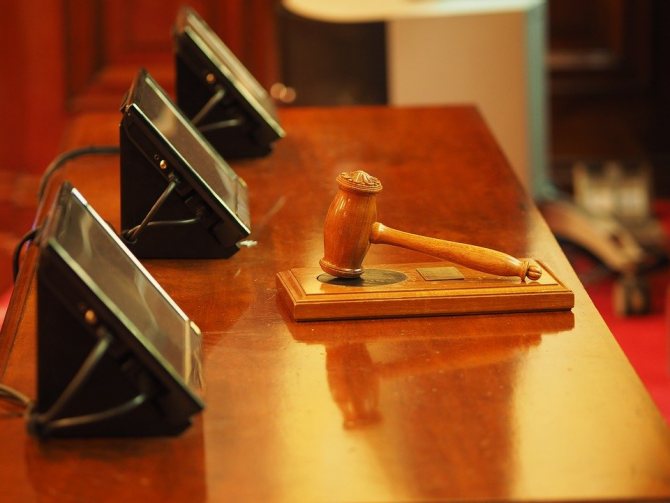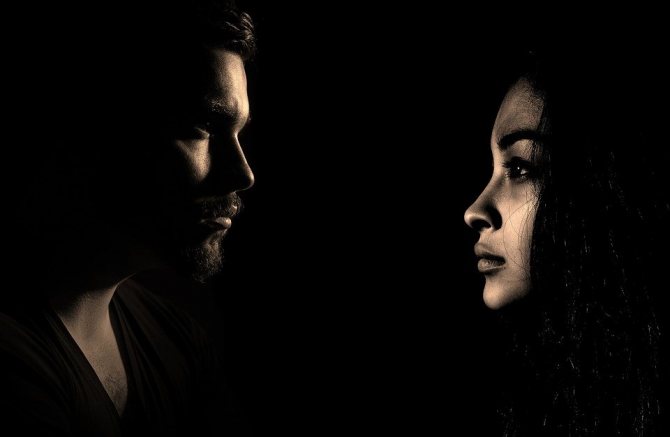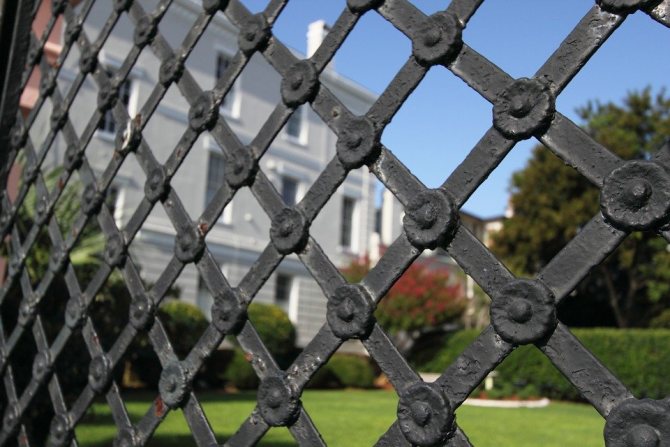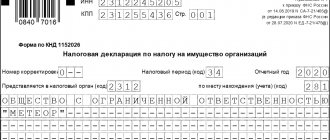Bankruptcy of spouses
The possibility of bankruptcy proceedings for individuals was introduced more than 4 years ago. Despite such a long-term law enforcement practice, some issues related to the topic of financial insolvency of citizens have not yet been resolved at the legislative level. A typical example is the joint bankruptcy of spouses.
It would seem that this format for implementing the procedure looks simpler than bankruptcy of each of them separately. Moreover, the above applies to all participants in the event - both debtors and creditors.
The lack of a detailed legal framework leads to the development of extremely contradictory judicial practice in implementing the bankruptcy procedure for spouses.
As a result, the legal assessment of the prospects for such proceedings, as well as the work of the judge and representatives of each party, becomes more complicated. Let's consider the most important aspects and problems that have arisen around the topic of bankruptcy of spouses.

Conditions for re-registration
When, after bankruptcy, an individual entrepreneur can reopen it, you need to perform a number of actions that are no different from the primary procedure:
- submission of documentation to the authorized body;
- sending an application to the Federal Tax Service (its territorial structures), sometimes it is necessary to submit a petition for transfer to a special taxation regime;
- providing a receipt for payment of the state fee;
- attaching a copy of the court order declaring a person bankrupt (this paper is not always needed, since it is usually transferred to the financial manager or the MFC);
- Waiting for a decision (up to 5 working days).
The complete package of documents can be submitted in person in paper form or sent remotely through a special electronic service. In the latter case, there is no need to pay a state fee. In the same way, you can submit documentation to close a business.
Read The pros and cons of the bankruptcy procedure for individuals in 2021 and their consequences

Are there legal grounds for joint bankruptcy of citizens?
The topic under consideration is at the intersection of two difficult areas of Russian legislation - bankruptcy and family law.
The main difficulty is the lack of a clear and understandable mechanism for carrying out the procedure for declaring spouses financially insolvent, moreover, tied to the provisions of the current Family Code of the Russian Federation.

A clearly stated possibility of bankruptcy of spouses in one procedure becomes a solution to two key problems of such events. The first of these concerns the issue related to the obligations of spouses.
Before the adoption of amendments to No. 127-FZ in 2021 (dated October 26, 2002, regulating the bankruptcy procedure), everything was simple and clear. Collection for the obligations of one of the spouses is applied only to the property of this spouse. An exception to the rule is the expenditure of funds for general family needs, confirmed by a court decision.
In today's situation, a logical question arises: is it necessary to prove each time the allocation of funds to the needs of the family or is this a fact by default? In other words, which party must prove its position - whether the debt is considered common - in court when implementing the bankruptcy procedure.
The second fundamental issue concerns the sale of property acquired during marriage and therefore recognized as common. And in this case, the current legal framework does not contain rules that clearly regulate the procedure for the sale of assets of a citizen who is legally married. Moreover, some provisions of No. 127-FZ directly contradict each other:
- clause 4 art. 213.25 determines the need to include in the bankruptcy estate the bankrupt’s property, which constitutes his share in the common property of the spouses;
- clause 7 art. 213.26 establishes: common property is sold as part of the bankruptcy procedure, after which the debtor’s share is allocated to pay off obligations to creditors, and the remaining funds are transferred to the second spouse.
The question quite logically arises: which of the described procedures should be implemented within the framework of bankruptcy in the presence of common property of the spouses? It is simply impossible to answer it correctly within the framework of current legislation.
Obviously, the introduction of a procedure for joint bankruptcy of spouses would make it possible to solve both the two described above and many other, less serious and large-scale problems. An important additional advantage is the banal saving of time.
It is achieved due to the absence of the need to divide the property of spouses during bankruptcy, since all their assets are simply included in the bankruptcy estate without the allocation of shares.
It is worth noting that this approach to resolving the issue is also beneficial for creditors. Property sold as a single lot is, in the vast majority of cases, more expensive than a share in the total asset.
As an interim conclusion, we can say that the introduction of a joint bankruptcy procedure for spouses provides a large number of advantages for all interested parties. There are no serious shortcomings visible.
Who will pay debts in bankruptcy?
According to the norms of the Insurance Code (Article 45), first of all, the borrower is liable for his debts with his own property. But what about the claims of creditors if the debtor, for example, only has a car, a dacha and a garage that were purchased during marriage? Under such circumstances, the consequences of accepting an application to declare a debtor bankrupt may be as follows: creditors will demand that the citizen’s share be allocated from the common property. This will be the same share as in a divorce.
What an individual can take away from both spouses during bankruptcy is common property if the loan funds were spent on the family. For example, a husband took out a loan and went on a foreign tour with his wife. When the time came to pay off the debt, due to circumstances he found himself insolvent. In such a situation, foreclosure may be applied to common property.
There is one more legislative nuance: you can lose common property if it turns out that it was acquired through criminal enrichment. Thus, if the husband took out a loan from a bank and did not intend to repay it (the court established the fact of fraud), and the spouses bought a car with these funds, they can lose it.
What problems arise when one of the spouses goes bankrupt?
With some degree of convention, the answer to the question posed in the subtitle of the article can be divided into two parts.

The first concerns the restrictions that inevitably arise after the launch and implementation of bankruptcy proceedings. The second is related to the potential danger to the share of the second spouse.
Restrictions during and after bankruptcy
Launching the procedure for declaring a citizen financially insolvent automatically means the imposition of strict restrictions. Their number is very large and includes the following rules, clearly regulated at the legislative level:
- transfer of the debtor’s bank cards to the manager, which is carried out within a day after the opening of the bankruptcy case;
- a ban on opening new bank accounts and conducting transactions on existing ones;
- a ban on any transactions with property, including purchase and sale, donation, exchange, etc.;
- prohibition on receiving funds from third parties. Any such operations are possible only with the participation of a bankruptcy trustee;
- prohibition on exercising the rights of a shareholder, founder or participant of a legal entity, including voting at a general meeting of shareholders;
- a ban on obtaining new loans and borrowings from banks, microcredit or any other financial institutions;
- prohibition on providing guarantees or guarantees for loans and borrowings.
Such an impressive list of restrictions is complemented by one more. The debtor is prohibited from creating obstacles to the work of the bankruptcy trustee.
This applies to all stages of the case, but is especially strictly controlled during the procedure for the sale of property in the event of bankruptcy of an individual. Any such action is a direct violation of the law and entails administrative liability.
The impact of the bankruptcy of one spouse on the property of the second
As noted above, a spouse is not responsible for the financial obligations of the other spouse. But this does not mean at all that the bankruptcy procedure will not in any way affect his interests, as well as the interests of other family members.
The fact is that the procedure for selling the debtor’s property in the event of bankruptcy of an individual provides for the inclusion in the bankruptcy estate of the debtor’s share in jointly acquired property.
In fact, with long-term cohabitation, almost all family property is considered common. In practice, this means that it is divided equally between the spouses. It doesn’t matter which of them worked and which of them did housework - everyone owns an equal share.
The division of property itself, which is carried out, for example, upon divorce, is a very difficult legal undertaking. When it takes place as part of another equally complex procedure for declaring one of the spouses bankrupt, resolving the issue becomes even more difficult. The already difficult situation is complicated by the lack of a clear mechanism for the sale of joint assets.
Despite the fact that the share of the second spouse is declared inviolable, the formation of a bankruptcy estate, property valuation, determination of shares and other similar events are often accompanied not only by moral costs, but also lead to obvious financial losses, as well as a drop in the value of property.
In one of the previous issues of Chance, we examined the question of what will happen to the jointly acquired property of spouses if one of them goes bankrupt. Today I’ll tell you what will happen to the wages and other income of the bankrupt himself and his other half while bankruptcy is underway.
Minimum Guaranteed
As a general rule, all the property of a citizen in the bankruptcy procedure is included in the bankruptcy estate. It is from this very mass that settlements with creditors are made. It may include: houses, dachas, land plots, cars and other property that has at least some value. One of the ways to replenish the bankruptcy estate is the debtor’s income, including his salary.
Of course, income can be different: for one it is 10,000 rubles per month, for another it is 50,000. Taking into account this amount, the law determines that funds in the amount of the subsistence minimum are not subject to inclusion in the bankruptcy estate and must be returned to the financial manager of the debtor on a monthly basis .
Let me remind you that in Khakassia for 2021 the cost of living has been established for the working population - 12,414 rubles, pensioners - 9,986 rubles, children - 12,509 rubles.
Consequently, if the salary is more than the subsistence level, then the financial manager will transfer 12,414 rubles to the debtor every month, and transfer the rest of the money to the bankruptcy estate.
But do not forget that a needy debtor under certain circumstances can increase these amounts. To do this, you need to contact the court that is considering the bankruptcy case with a petition to exclude additional funds from the bankruptcy estate. It should indicate that there are reasons why the debtor must incur additional expenses every month, and the cost of living does not allow him to maintain a more or less decent standard of living.
Such a petition cannot be filed arbitrarily; the court simply will not grant it. It is necessary to clearly formulate the reasons for such an appeal and to justify with documents the amounts that the debtor requests to be excluded from the bankruptcy estate.
Eg:
- Flat rent. If the debtor and his family do not have housing other than rented housing, then attach the rental agreement and proof of payment to the petition.
- Treatment. If the debtor has a disease and is forced to incur monthly expenses for medications, then attach receipts and a doctor’s prescription to the petition.
— Payment of utility services.
— Legitimate expenses for the maintenance of children. In Khakassia for 2021, the cost of living for children is 12,509 rubles. Since parents are obligated to support their children, ask the court to exclude this amount from the bankruptcy estate. If the bankrupt is not a single mother, then the court will exclude only 50% of this amount, since the second half must be provided by the child’s father. If the spouses are divorced and the father is a evader from paying alimony, attach to the petition a certificate from the bailiffs about the amount of debt. In this case, the court may deviate from the equality of costs and grant your request to exclude the entire amount of the cost of living for the child from the bankruptcy estate.
— Additional expenses for maintaining children. There are situations in which children require additional expenses. For example, a child is disabled or sick and needs expensive medications, care, additional classes, etc. In this case, please attach a doctor's report and payment receipts. These circumstances will be the basis for increasing the amount of expenses for maintaining children.
This list is not exhaustive. Each citizen has his own personal circumstances and reasons for petitioning the court to increase the cost of living. The main thing is to prove and justify to the court the need for these expenses. If the petition is granted, the financial manager will be obliged to monthly transfer to the bankrupt citizen the amount established in the court decision.
Example. A citizen's salary is 35,000 rubles. From the date of opening of bankruptcy, wages will be received by the financial manager, who transfers them monthly to the bankrupt in the amount of the subsistence minimum - 12,414 rubles. The remaining amount in the amount of 22,586 rubles will be transferred to the bankruptcy estate during the entire bankruptcy period. The citizen filed a petition in which he indicated that he had two dependent minor children and asked the court to exclude 50% of the subsistence level for each child from the bankruptcy estate (12,509 rubles/2= 6,254.5). If the court grants the petition, the bankrupt will receive a monthly amount from his salary in the amount of 22,586 + 6254.5 + 6254.5 = 24,923 rubles.
Salary and income of the spouse of a bankrupt debtor
In accordance with the Family Code, all property acquired by spouses during marriage is their joint property of 1/2 for each. Spouses' wages and other income, for example, from business, are no exception. Thus, the husband has the right to 50% of his wife’s salary and income, just as the wife has the right to 50% of his income.
If a citizen goes bankrupt, his salary must be transferred by the employer to the financial manager. To do this, the manager sends a notice to the employer indicating the amounts that the debtor can receive personally, as well as the period during which this notice is valid. The fact that the amount of wages (part of it) may not be included in the bankruptcy estate or excluded from it does not cancel the employer’s obligation to transfer funds due to the bankrupt citizen to the financial manager in full.
Issues regarding the exclusion of funds from the bankruptcy estate or the non-inclusion of a certain amount in the bankruptcy estate are resolved independently by the financial manager out of court.
The employer is obliged to transfer the salary of this citizen to the financial manager in full if the employer does not have a notification from the financial manager indicating the amounts that the debtor can receive personally.
Issuing wages (part of them) to a bankrupt citizen in cash during bankruptcy proceedings is illegal.
!!! It should be remembered that personal income (under certain conditions) can remain only the personal income of one of the spouses. For example, if the wife of a bankrupt husband has her own business of renting out a premarital apartment, then this income will only be her personal income. Or she receives income from securities received as a gift or inheritance, then this will also be personal income to which the husband has no rights, and therefore, in the event of his bankruptcy, his creditors will not have rights to these incomes.
If one of the spouses goes bankrupt, the 50/50 rule continues to apply. This means that if the bankrupt does not have enough property to pay creditors, then the creditor has the right to demand the allocation of the share of the debtor spouse, including from wages. Consequently, part of the wages of the other half of the debtor spouse may fall into the bankruptcy estate.
This judicial practice is quite contradictory and ambiguous. There is no uniform approach in the courts, but if the creditor turns out to be persistent and competently substantiates his claims, then he will have to pay. Therefore, I advise the bankrupt’s second spouse not to remain idle, but to actively participate in the legal process, objecting to the creditor’s demands and justifying to the court the need to bear the expenses that I described above.
And if the marriage union has actually broken up, the spouses do not maintain a joint household, but still cannot get around to going to court with a petition for divorce, then I advise you to dissolve the marriage before filing for bankruptcy.
It should be remembered that the exclusion of part of the income of the debtor and his wife from the bankruptcy estate is of a declarative nature. This means that the court does not consider such issues on its own initiative, so it is necessary to file petitions and actively participate in the trial, defending your interests and the interests of your children.
Have questions about bankruptcy? Have you decided to write off all your debts, but don’t know where to start? Call the “Public reception of the newspaper “CHANCE” by phone: 8-902-996-88-91, Tatyana Vitalievna Cherednichenko. All consultations are free.
___________________
More on the topic:
The wife is responsible for her bankrupt husband. How to preserve the property and salary of a debtor spouse?
A year of bankruptcies: five answers to frequently asked questions to the Chance lawyer.
Bankruptcy will become more expensive. We tell you what happened.
If you want to become bankrupt, go and earn money! Courts have increasingly begun to introduce an “extra” procedure in bankruptcy.
Stop bankruptcy. Who deceives debtors and how?
Debt good turn deserves another. Or is it not red? We “clear” the way for out-of-court and free bankruptcy.
Bankruptcy of one of the spouses
The issue of dividing marital property in the event of bankruptcy of an individual is rightly considered one of the most important, and therefore deserves more detailed consideration. A few key points are most important.
The first of them has already been announced above - in the event of bankruptcy of an individual, jointly acquired property is subject to inclusion in the bankruptcy estate in relation to the share of the spouse who is the debtor. In this case we are talking about the following types of property:
- housing, including apartments, rooms and houses;
- country houses, gardens, outbuildings and garages;
- land;
- commercial real estate;
- cars and other vehicles;
- securities, including shares, and interests in businesses;
- art and luxury items.
Some types of property cannot be affected by the bankruptcy of individuals. These include:
- the only housing in any form - a room, premises, apartment or house, if it is not mortgaged;
- the land on which it is located;
- personal belongings and items intended for individual use, such as clothing and shoes (except for luxury items, including jewelry);
- property necessary for conducting professional activities (not more than 100 minimum wages);
- cash and food in an amount equal to the subsistence level, etc.
The above lists apply equally to either spouse. It does not matter which of them was engaged in professional activities and which was engaged in farming. If the husband goes bankrupt, and all the property was acquired with the money he earned, this does not mean that the wife does not have the right to half of the joint assets.
Figuring out on your own how to protect a spouse’s property in the event of the other’s bankruptcy is far from easy. It is best to seek help from professionals. But some measures to protect your own interests should be known and taken in advance.
Spouses' property
Nowadays, declaring a citizen bankrupt is becoming something commonplace. Statistics also speak about this: according to the Unified Federal Register of Bankruptcy Information, the number of citizens declared insolvent has increased 15 times.
And this is just the beginning. Over time, bankruptcy issues will become even more popular.
In this regard, bankruptcy issues can affect every family.
These cases raise a number of very difficult questions. This article will provide answers to which court should be addressed if one of the spouses is declared bankrupt, what property of the spouse cannot be seized from him, and also what common property the debtor’s spouse can count on.
Where to contact? What will the spouse get?
In order to understand the issues of bankruptcy of a citizen, it is necessary to know the content of the term “bankruptcy estate”, which is used by bankruptcy legislation.
The bankruptcy estate is all the property of the debtor (i.e., a citizen against whom bankruptcy proceedings have been initiated), which will be distributed among his creditors.
The bankruptcy estate will not include:
- Living space. But only if for the citizen and members of his family who live together in this premises, it is the only premises suitable for permanent residence (does not apply to housing that is the subject of a mortgage, since by force of law it can be foreclosed on );
- Land plots on which such residential premises are located;
- Items of ordinary home furnishings and household items. As the Supreme Court of the Russian Federation explained, such things include objects that are necessary to satisfy everyday household needs. For example, beds, chairs, armchairs, cabinets, lamps, bathtubs, sinks, bedding and bath accessories, etc.
- Personal items (clothing, shoes and others), with the exception of jewelry and other luxury items;
- Property that is necessary for the professional activities of the debtor citizen. For example, some kind of machine for work. However, the cost of such an item should not exceed 10 thousand rubles.
- Deer, rabbits, bees and other similar “property”, if it is not used for business purposes;
- Seeds needed for sowing;
- Food and money worth at least 11,310 rubles. (the amount of the cost of living for the third quarter of 2021);
- Fuel necessary for the debtor’s family to heat their living space during the heating season;
- Various prizes, state awards, honorary and memorable signs.
The absence of this property in the bankruptcy estate means that it will not be given to the citizen’s creditors and will “remain” with the debtor (and therefore with his family members).
It is worth noting that the court has the right to include other items in the list of such property if:
- Income from the sale of such property will not significantly affect the satisfaction of creditors' claims;
- Its cost, as a general rule, cannot exceed 10 thousand rubles. However, in exceptional cases the court may deviate from this rule.
For example, in one of the cases of the DF legal agency, our client’s creditors referred to the fact that a citizen’s cash in the amount of 50 thousand rubles should be included in the bankruptcy estate.
In court, we referred to the fact that these funds were accumulated by the debtor to be used for the needs of his wife: carrying out an important medical operation.
Having confirmed this statement with the necessary evidence (providing a medical certificate about the wife’s health status, a protocol of the decision of the commission for selecting patients for medical care), we stated that in exceptional cases the court has the right to deviate from this limit of 10 thousand rubles.
The arbitration court agreed with our opinion and refused to satisfy this claim to the creditors.
Where to contact? Questions about which court to go to are not at all obvious, as it seems at first glance. The fact is that in the judicial system of the Russian Federation there are courts:
- general jurisdiction (courts that consider civil, including family disputes between citizens not related to their implementation of any economic activity), as well as
- arbitration courts hearing cases involving legal entities and individual entrepreneurs in connection with their entrepreneurial and other economic activities.
According to the law, disputes related to bankruptcy should be considered only by arbitration courts.
However, what if one of the spouses (not the debtor) made a demand for division of property? In 2021, the Supreme Court of the Russian Federation unequivocally answered this question: such cases should be considered by courts of general jurisdiction, since the claim is related, first of all, to the division of jointly acquired property, this is a family dispute.
The spouse who filed a claim for division of property does not act as a creditor of his spouse, therefore, the issue will not relate to the jurisdiction (conduct) of the arbitration courts.
If a court of general jurisdiction does not accept such an application, we advise you to apply to the arbitration court with a district court ruling to refuse to accept the claim. In this case, the arbitration court will be forced to accept such a claim.
Division of joint property of spouses in bankruptcy
In one of the “fresh” decisions of the Plenum of the Supreme Court of the Russian Federation, the issues of the procedure for repaying the claims of creditors of one of the spouses were comprehensively explained.
Repayment (or satisfaction) of creditors' claims occurs at the expense of property that is in the bankruptcy estate. The following order is established:
- First, the claims of creditors are repaid from the debtor’s personal property, as well as from the value of the spouses’ common property attributable to the debtor’s share.
- Then the funds attributable to the debtor's spouse are used to satisfy the claims of creditors for general obligations (in the outstanding portion), and the remaining funds attributable to the debtor's spouse are transferred to this spouse.
The fact is that for the purposes of bankruptcy of a citizen, the court will take into account not only the personal obligations of the spouse (for example, his personal debt under any loan agreement), but also their general obligations (for example, a loan agreement of the spouses, the money under which was spent on joint summer vacation).Therefore, in the case of such common obligations, the share in the common property of the spouses, which is due to the spouse who is not a debtor, will be used to pay off the claims of creditors (in our example, to pay off the bank’s claims).
Only after such general obligations have been paid out of the share of the non-debtor spouse is the remaining property transferred to that spouse.
This means that the creditors will be “given” not only, for example, a car purchased by the debtor-spouse before marriage (that is, his personal property), but also the debtor-spouse’s share in the common property (for example, ½ part of a country house purchased by the spouses jointly during marriage).
The question of what obligations are considered the general obligations of the spouses will be decided by the arbitration court within the framework of one bankruptcy case.
Bankruptcy issues are so complex that there are many exceptions to the general rules established by family law.
In this regard, here is another successful case of the agency.
In a bankruptcy case, we represented the interests of the debtor spouse. The latter was presented with a demand from the heat supply organization (creditor) to pay for heating services.
Our client's ex-wife stated that bankruptcy proceedings were filed against our client, so her share of the property could not be foreclosed on. In addition, all debts between them were already “divided”.
We refuted this assertion with the following arguments:
Firstly, the debt to pay for heating services is a common obligation of the spouses.
Secondly, the spouses are joint and several debtors in this case (that is, a claim can be made by the heat supply organization against any of them).
Thirdly, according to the legal position of the Supreme Court of the Russian Federation, the distribution of common debts does not change the joint and several nature of the obligations of the spouses.
In this dispute, our client, after paying for heating services, filed a recourse claim against his ex-wife to pay her part of the debt. The court satisfied our client's request.
Mechanism for protecting property from foreclosure
Given the poor development of legislation on the financial insolvency of citizens, the question of how to preserve property in the event of bankruptcy of individuals becomes especially relevant. First of all, the answer to this question is of interest to the second spouse and other members of the debtor’s family.

There are two main options for protecting property from inclusion in the bankruptcy estate and subsequent sale. The first and simplest is concluding a marriage contract.
The contract can be signed by the parties both before the marriage and at any time. The provisions of the contract may apply to property already owned and to property that is planned to be purchased.
The second answer to the question of how to preserve property during bankruptcy involves the introduction of the so-called separate property regime. Its effect extends to almost any type of property, from personal belongings to intellectual property. Naturally, these include the most valuable real estate in the event of bankruptcy of individuals.
The most reliable way of protection is considered to be a marriage contract, which is drawn up upon marriage or long before the bankruptcy procedure is launched.
Any actions of spouses, one of whom is a debtor, taken immediately before the occurrence of financial obligations, are very carefully considered by creditors and the bankruptcy trustee. Documents drawn up and signed after debts appeared are of even greater interest.
Therefore, to effectively protect property from foreclosure during bankruptcy proceedings, it is necessary to take care of this in advance. The second prerequisite is the proper execution of documents.
It is important to remember that the financial manager and creditors have the right to challenge any deal the debtor entered into within three years before the opening of bankruptcy proceedings.
A common mistake is selling assets at a reduced price. This transaction scheme allows the debtor to receive part of the funds in cash against a receipt, and then dispose of the money at his own discretion without control from the manager.
Another basis for declaring a transaction invalid is the preference of one creditor, which entails damage caused to others. To make such a decision, any of several conditions must be met:
- fulfillment of the debtor’s obligations to the creditor if they arose before the implementation of the disputed transaction;
- changing the order of priority for repayment of the debtor’s financial obligations established by the bankruptcy trustee;
- early repayment of debt to one creditor in the presence of unfulfilled financial obligations to others;
- violation of the priority order of fulfillment of financial obligations established by the requirements of current legislation.
What happens to family property when an individual goes bankrupt?
How will the fact of bankruptcy affect the relatives and family members of the debtor? How much, if at all, will their interests suffer? It is difficult to answer these questions unambiguously - it all depends on the specific situation, the share of each in the general list of valuable property and assets of the family, as well as the forms of ownership of its individual objects.
Is a spouse's property taken into account in bankruptcy?
The situation can develop according to several scenarios:
- the object is registered in the name of a person who is not the debtor - it is sold, the amount is divided equally. One share goes to the second spouse, the other goes towards the debt to creditors;
- property purchased before marriage - remains with the owner and does not appear in the case;
- a share of the family's valuable assets is given as a gift to the non-insolvent spouse - ownership is retained and capital is not taken into account;
- there is a marriage contract - it describes all the valuables that are not subject to sale and belong to a specific person.
Common property of spouses in case of insolvency of a citizen
Not all property of a bankrupt family can be sold. The list of what should remain in its property is regulated by law. This housing - if it is the only place where the family can live, personal belongings of each person, professional equipment and equipment, clothing, food, money - in the amount of the subsistence level for each.
Mutual responsibility of relatives will occur only if the court proves that the debts belong to the husband and wife, and the funds spent were aimed at satisfying mutual interests.

Will my spouse's consent be required to sell property?
The functions of organizing and conducting trading are assigned to the financial manager. If the property is registered in the name of the defaulter, then everything is clear. If it is for the second spouse, then another proceeding is opened first. During it, some of the objects that can be implemented will be highlighted. In this case, consent will not be asked - the basis for the sale will be the arbitration decision.
If the husband goes bankrupt
Legally, there is no difference in who is declared bankrupt - husband or wife. A woman's property will only be affected if it was purchased during marriage. If this is an inheritance, it is not subject to confiscation and will not be used to cover debts.
Reference! The spouse's personal account cannot be seized. Provided that this is a personal salary or pension information. And any attempt by the manager to obtain information about his condition is classified as illegal.
If your wife goes bankrupt
When proceedings begin in relation to the wife, the algorithm for the development of events is the same. The husband will receive the portion allocated by the manager from the sale of valuables. His personal valuables will not be affected if they belong only to the husband and were purchased by him before marriage, or received as a gift from a third party.
If the apartment has a mortgage
Those who pay mortgage loans are most afraid of losing their home, especially if one of the spouses has already suffered bankruptcy. And these fears are not unfounded. At the same time, even the young children of the spouses are at risk of ending up in an unpleasant situation with eviction. If it turns out that after the seizure of the apartment, minor citizens have nowhere to live, they can be temporarily transferred to the guardianship authorities. Why is this happening? The fact is that from the point of view of the law, if the mortgaged property was not registered as family property, then even if this is the only place of residence, the apartment can be put up for auction.

Consequences of bankruptcy for the debtor and his family
The launch of bankruptcy proceedings for an individual is accompanied by consequences that, with some convention, can be called current. They are valid only until the case is completed and the debtor is declared financially insolvent.

Current legislation provides for the following consequences of bankruptcy of an individual:
- Ban (or introduction of restrictions) on traveling abroad. The basis for such a decision by the judge is usually the debtor’s attempt to hide from the administrator. In practice, such a ban is rarely applied.
- Prohibition on the acquisition or sale of property. The standard duration of the bankruptcy procedure is 5-6 months. During this time, any transactions of the debtor with the property are possible under one condition - with the consent of the administrator. In practice, obtaining such permission is either very difficult or simply impossible.
- Prohibition on payments and other transactions using bank cards and accounts. Control over these financial instruments from the moment the bankruptcy case is opened passes to the arbitration manager.
In addition to the consequences for the debtor, the bankruptcy of an individual also negatively affects his family members. The first victim is the second spouse. This is due to the possible division of joint property or other negative results of bankruptcy proceedings, for example, a decrease in the real market price of assets.
Similar risks arise for other family members. The situation is especially unpleasant when relatives own real estate in shared ownership. After the transfer of the debtor's share to one or more creditors, it is necessary to negotiate with them about the further exploitation of the building or land plot.
The main consequence of completing the procedure and declaring a citizen bankrupt is a ban on entering into management positions in organizations, as well as the creation of LLCs and individual entrepreneurs. The term of the first restriction is 5 years, and the second is 3 years. Also, repeated bankruptcy is prohibited for 5 years and there is an obligation to notify the bank of financial insolvency when applying for a loan.
Is it possible to open an individual entrepreneur if an entrepreneur goes bankrupt?
An individual submits an application to the Arbitration Court to declare him bankrupt. At the same time, the individual entrepreneur does not officially close. On what collective grounds can you apply for bankruptcy proceedings:
- it is no longer possible to meet all existing financial obligations to creditors and other parties;
- the debt exceeded 500 thousand rubles, there are arrears on loans and credits related to commercial activities.
When a government agency makes a decision on insolvency, the entrepreneur automatically stops working. A copy of the resolution is sent to the Federal Tax Service. If business licenses were previously issued, they are automatically canceled and are no longer valid.
The legal process is no different for individual entrepreneurs and individuals. It turns out that in the future, the debtor carries out all subsequent procedures after official bankruptcy as an ordinary citizen, and not as a businessman.
The court prohibits doing business for 5 years. This time is counted from the moment the case is completed in court.
Experts recommend first closing it with the tax office and only then starting the process of confirming insolvency as an individual. At the same time, it is not legally prohibited to transfer the business to a close relative or become self-employed.
When the amounts of debt are small, lawyers recommend proceeding as follows:
- settle accounts with employees (wages, compensation payments);
- fire all staff;
- close the IP;
- file documents for declaring bankruptcy.
Interesting fact: if a person is declared insolvent as an entrepreneur, in the future he can go through the same procedure as a citizen. For example, if a business went bankrupt, the court closed the status and wrote off debts, and an individual took out consumer loans and was laid off at his place of work, the debts can again be written off if insolvency is confirmed.









